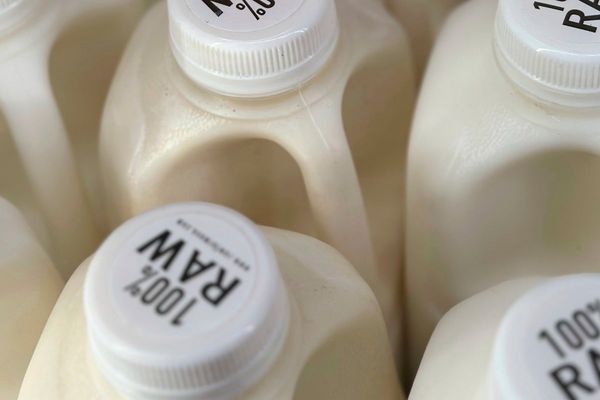Some people beyond Washington might consider announcing a presidential campaign in 2018 for an election in late 2020 a tad premature. Those people would be correct.
Here's how things have changed over the years in our commander-in-chief sweepstakes: John F. Kennedy announced his presidential candidacy on Jan. 2, 1960, 10 months before the election. Bill Clinton announced his 13 months before the election.
George W. Bush jumped in 17 months before. Barack Obama was 21 months out. Elizabeth Warren made it about 23 months out, and she wasn't the first.
Some countries believe citizens can make reasonable leadership decisions based on a 40-day campaign. They would be right.
But U.S. politics are rowdy by nature. Hopefully, few Americans with a real life will pay continuous attention to the 2020 races from now on. Of course, our pervasive media will provide daily _ even hourly _ coverage because most of the competition will be among its favored Democrats.
Our presidential campaigns have indeed grown too long, way too long. There are compelling reasons and silly ones, not to justify, but to explain it.
Like money. Many wealthy donors and PAC-backers have millions of discretionary dollars available to gamble on a preferred candidate for the excitement, ego-stroking, access and potential influence that money might bring them down the road.
Even small donors _ those who give less than $200 and, therefore, go unidentified in federal records _ get a kick out of having skin in the highly-publicized campaign of someone they may truly believe in. It's not unlike the surge in lottery ticket sales for the big prizes.
Let's be honest, the TV industry hardly minds stoking national campaigns that spend billions on commercial time.
The 2016 Democratic race was rigged for Hillary Clinton, but that didn't keep Bernie Sanders fans from chipping in millions online. Same for Republican Ron Paul 10 years ago.
Warren announced her candidacy on New Year's Eve, not a prime time to attract the attention of sober citizens. Her big thing is a large tax on wealthy people to spread it around more equitably.
You haven't heard much about Warren since, as she seeks to make full use of the year's first 89 days to phone, visit, message and massage the egos of would-be donors.
This is a crucial time in presidential campaigns when dollars are votes. When first-quarter fundraising totals are published for all campaigns in mid-April, she hopes her haul will be large enough to scare off other Democrats, especially those of the progressive persuasion.
Already, one Democrat few even knew was a presidential candidate has given up after only two months. State Sen. Richard Ojeda of West Virginia was short of money and attention. Now, he's a trivia question.
Early reports indicate Democratic donors are going to be slow to commit this time. That's likely a wise move since the race is longer, and the field of liberal wannabes could well exceed the 17 Republicans last time, 16 of whom lost, along with all their donors' dreams.
Even some mayors think they're Oval Office-qualified.
So, why do so many seek an electoral prize only one will win? Ambition, ego, attention, genuine desire to serve, to build name familiarity for future bids, an interest in drawing publicity to an ideology or policy �" and to themselves.
Remember Alan Keyes? He was a little-known conservative activist who said he was seeking the GOP presidential nomination several cycles ago.
Backstage at an Iowa TV debate in 1999, I asked him why he was taking up one of the night's six seats with zero chance of success. He said the "candidacy" would double his speaking fees for the next year.
The 2020 race seems extremely attractive because of President Donald Trump and the substantial, stubborn majority of Americans who disapprove of his job performance. You must have seen these daily polls media publish, as if to prove a point.
On the stump for initial primary debates, Democrats will attempt to out-loathe him. That may work in the primaries.
But so many hungry candidates will split Trump's opposition. And that seems likely to produce the same result as the GOP experienced three years ago: No candidate dominates the field, just several with pluralities, allowing an unexpected one to eke out a triumph. Or perhaps an alluring independent.
General election campaigns, however, are a different species. They require genuine policy specifics and a central message about the future. Ask Hillary Clinton if that matters.
Every campaign day is brutal, high-pressure and exhausting for candidates and staffs, ripe opportunities for major gaffes. Compared to any likely Democratic nominee, Trump has more experience there, with a national campaign and gaffes.
Trump may also have a GOP primary challenger, someone sedate and articulate who'll vow to restore decorum, sanity and real conservatism to the party of Lincoln. That viable party challenger will not defeat the president. They never do.
That in-house challenger will, however, virtually guarantee the incumbent's November defeat. They always do.
In that sense, for political spectators the real race to watch from time to time will not be the chattering pack of Democrats over-promising goodies for each of their segregated segments. The real race to monitor will be the loud, lonely one on the Republican side.







